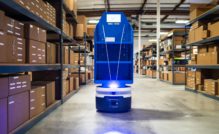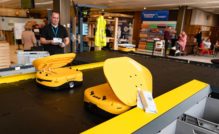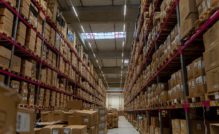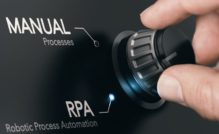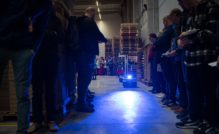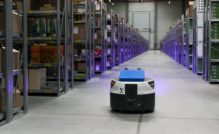First year in HELPDESK team
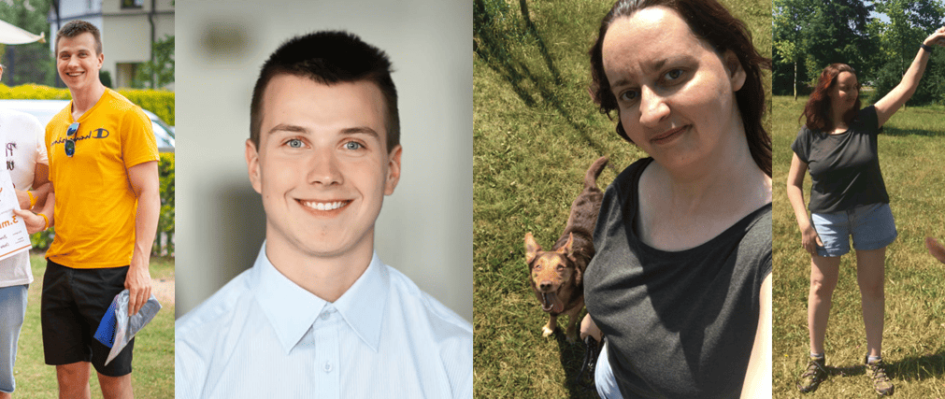
IT Specialist, Helpdesk Specialist, IT Analyst, Support… Underneath it all may be the one thing everyone avoids: THE CLASSIC HELPDESK. But certainly not in Sluno.
What does the helpdesk look like in Sluno? How does it work when you join us? What do you need to know and what will you learn? We interviewed our newcomers. Katka Králová joined six months ago and Ondra Janík has already been with us for a year and a half.
Where were you looking and why Sluno?
Katka: I was writing manuals for packaging machines in an Ostrava company for three years and I was getting bored with it. They all looked the same to me. I was a few months out of my state exams at the University of Business and Economics, majoring in Control and Information Systems, and I wanted to move on. Closer to development. I found out that you were looking for a helpdesk specialist on jobs.cz. Although I didn’t know Java at that time and I didn’t remember much of SQL, I was intrigued that I could learn everything. So I gave it a try.
Ondra: I studied Information Technology at the Business Academy Ostrava-Poruba and after school I worked briefly as a programmer in a corporation. I’m glad that Sluno gave me the opportunity to learn something new and expand my knowledge without the need for previous years of experience.
How was the interview?
Katka: In the first round, I talked to my potential boss and Eva from HR. In the second round, four future colleagues were waiting for me with a test. It was a bit of a stretch, but I was able to figure out and deduce most of the answers.
Ondra: It was similar, they tested us on basic knowledge of SQL, JAVA, UNIX and PL/SQL.
What surprised you?
Ondra: I was surprised by the variety of work, the friendly environment and the individual approach to training. A good benefit is flexible working hours and multisport. I was impressed that Sluno is a smaller family company where everyone knows each other and gets along. It is nice to work in such a company.
Katka: I was surprised by the daily habit of our team. Every morning we go to the kitchen together for coffee. At my last job, I was alone most of the day and now I’m having coffee with eight other people.
What have you learned and what would you like to learn?
Katka: I feel like I’ve learned a lot in the six months I’ve been at Sun and I’m glad for that. I had an adaptation plan from the beginning. I learned how the warehouse systems work and who our customers are. I have learned SQL, PL/SQL and I am familiar with the UNIX environment. Now my plan is Java. I want to keep learning. I can handle the basics on my own and then I will ask one of my colleagues to hire me for Java as well.
Ondra: I didn’t come with a lot of knowledge, but rather with a good foundation, which we built on and added more knowledge. For more than half a year I focused mostly on working with SQL and UNIX. As my knowledge grew, I got into minor functionality modifications, modifying screens in Java, and more development of new Interfaces for a Czech wholesaler. In the meantime I do customer support. I deal with service requests and make sure that all data is transferred to the e-shop. If necessary, I modify functionalities according to customer requirements.
What do you like about it?
Ondra: The diversity of this work. I don’t do the same thing over and over again. I get different requests and I have to find the cause and be able to solve the problem. It’s a cliché, but I learn something new every day. These are either development requests where code or functionality needs to be modified, or service requests where, for example, a different quantity of goods was suggested for an order than the customer expected.
Katka: It’s detective work. You gradually discover what the cause of the problem is, and in the end you find out that it wasn’t that complicated. That’s how I learn, and that’s what I enjoy most about it. I’m also kept here by my teammates, who are nice.
What does your normal working day look like?
Katka: I’ll see what I have to do in the morning. I’ll do the easier tasks first. Then I’ll move on to the long-term ones, which require self-study. Like analyzing the transfer of data from one system to another, which involves a bunch of tables, programs, and probably unsupported exceptions where the transfer fails. My job is to figure out what the transfer is failing on and fix it. Or a colleague sends me a problem to try to solve, because he knows it’s new to me and I can learn something.
Ondra: My work day starts after waking up with a quick check of notifications on my phone to see if everything is ok at work. I keep oncall, when the customer pays for support in the evening and early morning, when the programs that process data for their e-shop are running. That’s when they can call us. Once something is wrong, it needs to be resolved before they leave the house.
Then I move into the office for most of the week. I’ll sort through my emails and grab a morning coffee with my colleagues. Then I prioritize my tickets and act accordingly. No one assigns us tickets. I have a clearly defined area that I’m dealing with and I know what to take on. Some things get done in a minute and some things take more time. If a request comes in repeatedly, I try to automate the resolution.
Among my long-term tasks is the development of interfaces for a Czech wholesaler. I need to replace the original program that processes data into tables, which are then loaded by the e-shop. My task is to transfer the functionality of processing the large amount of data that is uploaded every morning to a new system using better technology.
Where do you get your energy for work?
Katka: I recharge my energy with my dog Beny, a cross between a Labrador and a German Shepherd. I can’t take him to work, he wouldn’t leave us alone, he’s too friendly. Otherwise, I like to take the train. This year I want to go to the north of Poland.
Ondra: After work I usually head to the gym and then quickly home to cook lunch for the next day’s work. When there is time and mood, I like to play on Playstation, listen to music, go to a concert or a festival. This year I’m going on holiday to Amsterdam and Greece. I like to lounge by the sea, all-inclusive and drinks, just enjoy my time off.
Clearly and briefly, we don’t have a classic help desk. There is no need to be on the phone 24/7, and we don’t deal with simple technical requests like on/off. The job of Sluno helpdeskers is to analyze, test, fix and develop code. Primarily to solve software problems in the application and communicate online. At Sluno, you will become an expert in specific software applications.
